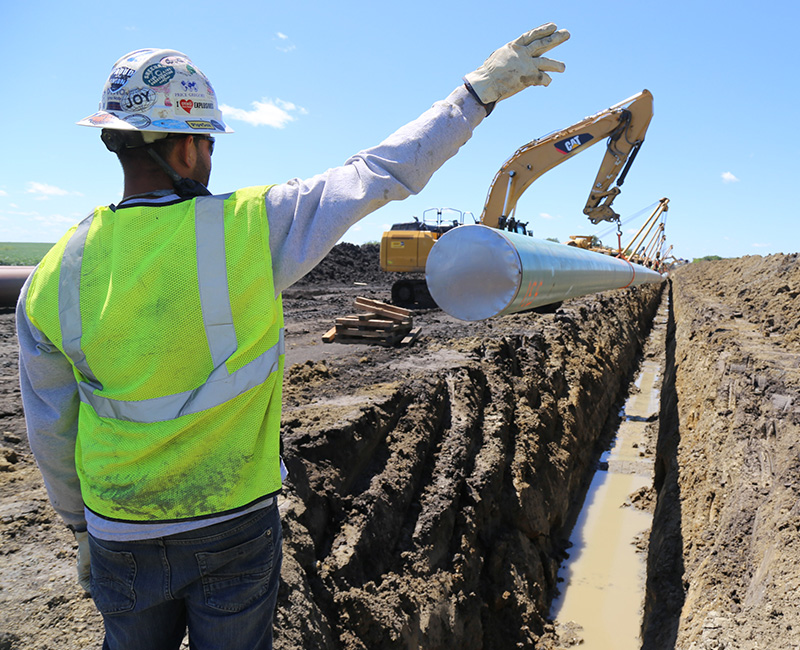Permian Natural Gas Prices Plummet to 15-Month Low Amid Lingering Negative Territory
(Reuters) — Natural gas prices in the top U.S. shale field hit their lowest level in 15 months this week and continued to trade in negative territory as a supply overhang shows no sign of quickly abating.
Prices at the Waha hub NG-WAH-WTX-SNL in west Texas closed at negative $2.99 per million British thermal units on Monday, its lowest since December 2022, according to data from LSEG. Waha gas has been trading negative for 23 out of the past 25 days, meaning producers are paying to have their gas taken away.
Natural gas in the Permian and across the U.S. has been oversupplied following a warmer-than-expected winter, offtake constraints, and operational issues at a major liquefied natural gas plant in Texas.
Despite negative Waha gas prices, production in the Permian is expected to rise next month alongside oil output, the U.S. Energy Information Administration (EIA) said this week in a monthly report.
Permian gas output is forecast to rise by 140 million cubic feet per day (MMcf/d) to 25.2 billion cubic feet per day (Bcf/d), while U.S. gas output is expected to fall by 258 MMcf/d to 99.9 Bcf/d, the EIA said.
In the Permian, much of the gas is produced alongside oil, which is trading near $85 a barrel - a level strong enough for producers to pay to have gas taken away.
Waha negative pricing could hold through the second quarter, researchers at investment firm Tudor, Pickering, Holt & Co. said in a note on Monday, with some relief expected later in the year when the Matterhorn Express pipeline, a joint venture between infrastructure company WhiteWater, EnLink Midstream, Devon Energy, and MPLX, starts service.
That 580-mile system will move 2.5 billion cubic feet per day of natural gas from the Permian Basin to the Houston, Texas, area.
"I would expect [Waha prices] to improve towards the end of April, early May, but we are going to see continued low Waha prices until Matterhorn comes online", said Robert Wilson, vice president of analytics at East Daley Analytics.
Near-term prices will remain pressured by pipeline maintenance and outages at the Freeport LNG terminal in Texas.
Kinder Morgan's KMI.N El Paso and Gulf Coast Express pipelines are both undergoing maintenance and its Permian Highway Pipeline expects a reduction in capacity next month.
Freeport, meanwhile, remained mostly offline for a fifth straight day on Monday, with gas utilization rates at 125 million cubic feet per day (MMcf/d), or 5% of its fully operational use, data from financial firm LSEG showed on Monday.
The company in late March said it expects Trains 1 and 2 to remain shut until May for inspections and repairs, while Train 3 was operating.
Those outages helped put pressure on the benchmark for natural gas in the U.S., with Henry Hub NGc1 trading at around $1.68 per MMBtu during intraday trading on Tuesday, compared with $2.28 this time last year.
Related News
Related News

- Keystone Oil Pipeline Resumes Operations After Temporary Shutdown
- Freeport LNG Plant Runs Near Zero Consumption for Fifth Day
- Biden Administration Buys Oil for Emergency Reserve Above Target Price
- Mexico Seizes Air Liquide's Hydrogen Plant at Pemex Refinery
- Enbridge to Invest $500 Million in Pipeline Assets, Including Expansion of 850-Mile Gray Oak Pipeline





Comments